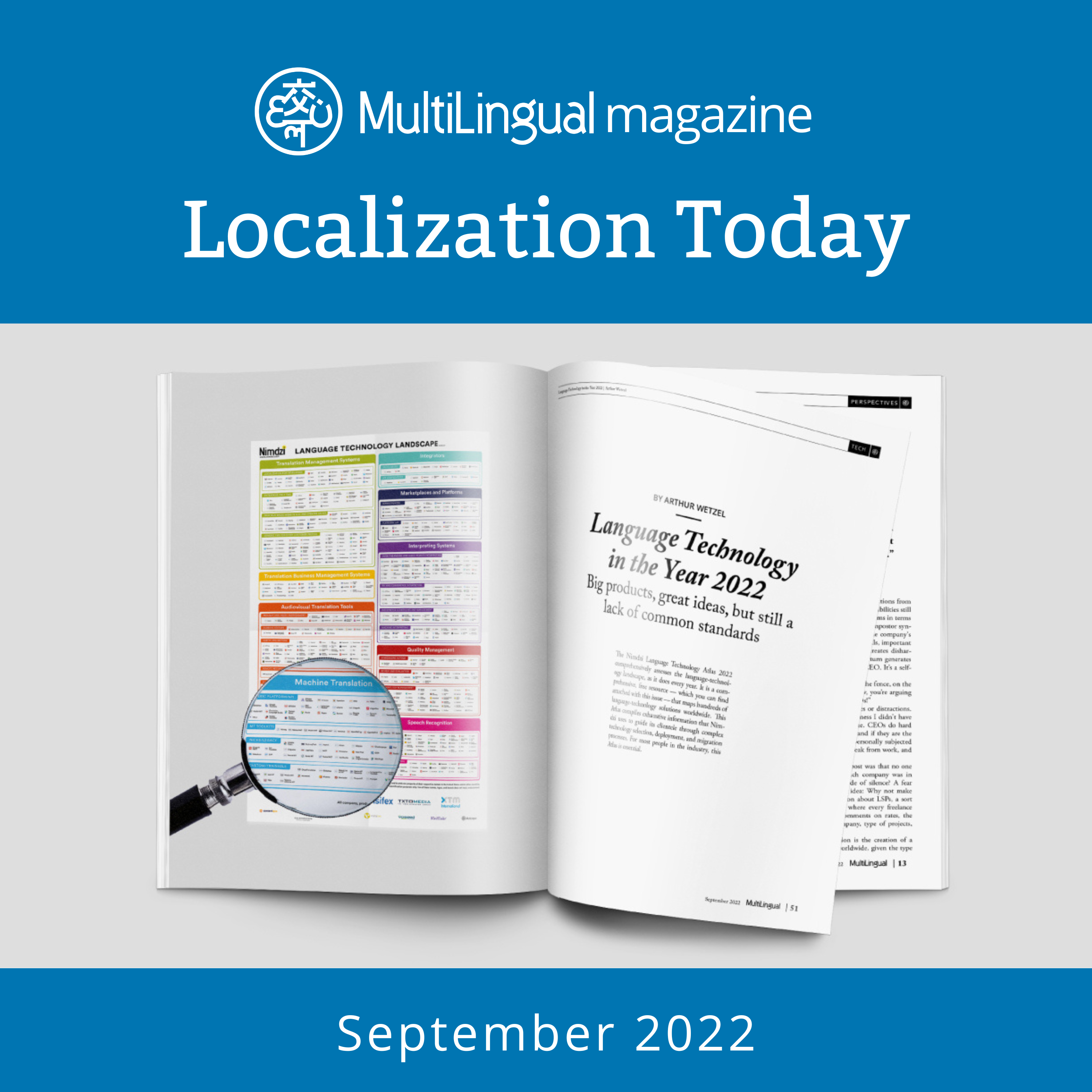Episode Transcript
[00:00:00] Lessons in Localization for Startups and Emerging Companies by Brian MC Connell the localization industry tends to cater to large companies with established localization teams and formal processes. But what works for that market doesn't necessarily work well for startups and other emerging companies. Having spent my entire career working with and for technology startups ranging in size from two to several thousand people, and in stage of development from angel investment funded to post initial public offering, I've observed these companies approach localization in a very different way compared to later stage companies that have established programs. In this article I discuss issues that startups often encounter, present solutions and illustrative examples, and urge language service providers, LSPs and language technology companies to appeal to emerging businesses early in their development.
[00:00:58] Common Pitfalls Startups are usually obsessed with finding product market fit above all else and as a result tend to put off many other things, localization preparedness being one of them, until they are fairly far along in their development. Because of this, they will typically have a lot of technical debt, a hodgepodge of poorly integrated systems and other related issues.
[00:01:24] Most companies I have worked with had a big mess to clean up before they could expand into new regions and languages. Additionally, emerging companies often conflate localization with international expansion, which can include a lot of other considerations like regulatory compliance and differences in culture and business practices. This often causes managers to get stuck weighing risks. Another pattern I've seen quite a bit is that localization will start out as a hackathon project within an engineering or product team. Their focus is usually on localizing the web and slash or mobile apps. This is often done in response to a prospective customer asking for language support. They'll land on random vendors via Internet search and generally use whatever works for their immediate purposes. If it is an engineering led effort, they will look for a translation tool with a low cost of entry that they can sign up for without talking to a salesperson. Most engineers hate talking to salespeople. Similarly, to find an LSP they'll use a search or maybe a recommendation, but rarely will they do a formal request for proposal rfp. Once a startup has a translation solution that is good enough for its purposes, it will be difficult to switch. Startups often box themselves into platforms and service providers that, while they got the job done for a prototype, aren't necessarily a good long term fit. Translation Management System TMS platforms that specialize in app localization but provide poor support for other asset types are a case in point. Content Management System, CMS and Help Center Platform selection is another issue.
[00:03:07] Startups usually settle on these platforms well before they seriously consider expanding into new regions and markets, and they rarely consider multilingual support and related factors in their purchasing decision.
[00:03:20] If they do happen to pick a platform that is global ready, that is mostly by chance, instead of design, they'll usually opt for the cheapest solution or whichever platform the project lead has worked with in the past. The challenge then is that it is often expensive and time consuming to migrate off these platforms. Most startups are under resourced, especially in terms of engineering, so that often becomes a blocker that causes senior managers to delay localization to cover most user touch points, which leads to a broken user experience and less than great results. This will typically change when the company reaches a revenue or fundraising milestone or sees flattening growth in its home market that causes it to realize localization is a must have, not a nice to have. Around that point, someone like me is typically brought in to build localization out in a scalable manner, which could be either fun or an ordeal depending on factors like executive alignment and engineering support.
[00:04:22] By the time this happens, the company usually has a lot of technical debt that takes many months to deal with. Paths to Success Nowadays, I try to get in front of new companies early on in their development, even if they are a couple of years away from even thinking about international expansion. I educate them about design and coding patterns that will prevent them from accruing technical debt, as well as the importance of considering multilingual support in cms help center and lifecycle communications platforms. I also encourage startups to decouple language access from international expansion, and in the case of American companies, I encourage them to roll out a Spanish language experience for the United States US Market the Latin market in the US is significant and in some metro areas a majority or near majority of customers speak Spanish. In certain verticals like healthcare, language accessibility is often a must have. The process of upgrading the product to work in Spanish enables the emerging company to get a lot of the foundational work that will be needed for international expansion out of the way while producing a near term win in the form of net extra customers in the domestic market. These best practices can save them months and in some cases over a million dollars in engineering time, but that pales compared to the cost of delayed time to market. The following examples demonstrate why considering localization early is a good strategy for startups. Case Studies Lyft, one of the companies I worked for, was a case in point. It had operated exclusively in the US and only in English for years before I joined first to work on its expansion into Canada and then to add language support. There were assumptions about US And English operations baked into every aspect of the company's systems. It took nearly two years to get the product into a state where the service could work in other regions and languages. Lyft also failed to adapt its rideshare product for more regulated markets, whereas its competitor Uber pivoted to become a licensed taxi booking service in many European markets. Uber completely ate Lyft's lunch even in the US Spanish speaking market because Lyft was years behind in rolling out language support. Now, as of August 2025, Lyft is worth USD $5 billion while Uber is worth $180 billion, underscoring the cost of seeding international opportunities for growth, Notion, on the other hand, was a startup that got things mostly right. The founder, Ivan Zhao, was born in China and lived in Japan during the company's early development. He understood the importance of language accessibility and making a product that would appeal to people wherever they are. While Notion's software wasn't localized initially, it didn't block people from authoring content in whatever language they wanted. Notion localized the product soon after it started taking off, especially when it noticed it had large user communities in Japan and Korea, which was unusual for a product that hadn't been localized yet. Luckily, the company had settled on Contentful for the website and help center, and it took only about a week to set up an integration between Smartling and Contentful. Today, Notion has localized all user touch points, offers 19 languages and dialects, and states that about 70% of its users are from outside the U.S.
[00:07:58] implications for language Companies A small startup today could become a billion dollar company in two or three years if you don't catch them early. By the time they become conventional prospects, they will likely have settled on other solutions. LSPs and language technology vendors should make their onboarding process as frictionless as possible so that new clients can easily trial their solutions while building their prototypes. By helping emerging companies consider localization from the start, language companies can secure their place in the most up and coming organizations. This article was written by Brian McConnell. He is the founder and general manager of Localization Technology Partners, which provides localization and technical program management for startups and emerging companies.
[00:08:49] Previously, he built out the localization technology and teams at a half dozen companies, including Lyft, Medium and Notion. Originally published in Multilingual Magazine, issue 244 September 2025.


